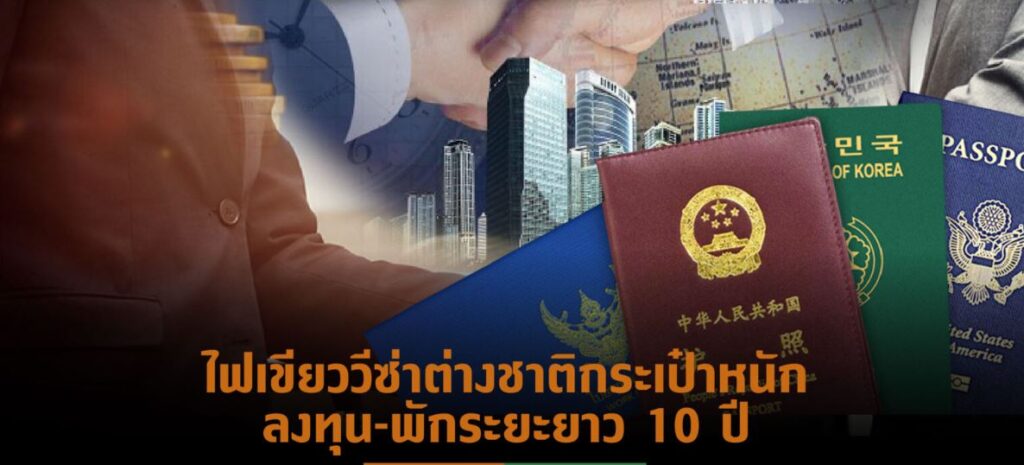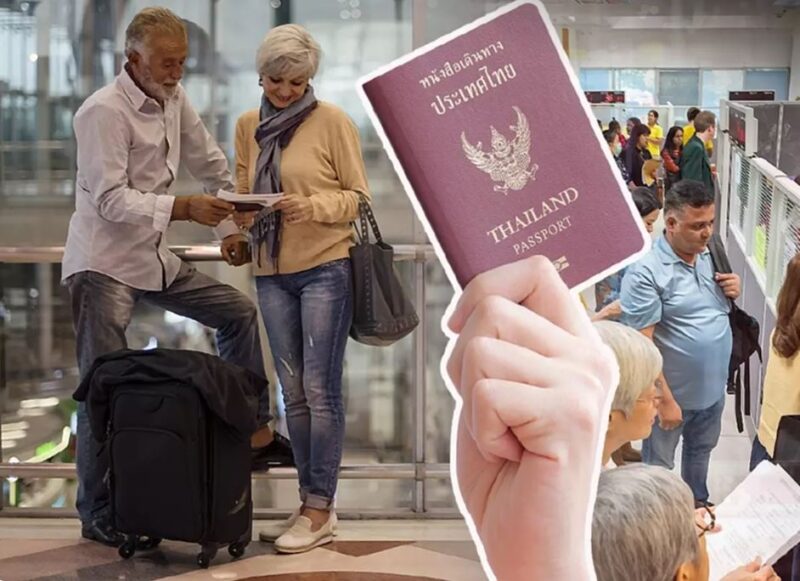The Thai LTR (Long Term Residency) visa was introduced in September 2022, but the Board of Investment is currently looking for international investment firms to promote more golden eggs to be laid by wealthy foreigners. There are issues to solve.
Although Thailand promotes its version of LTR, other nations discontinue theirs. Because immigrants, particularly Chinese and Russians, have been utilizing their resident permits to purchase up desirable houses, causing inflation and making it impossible for less fortunate citizens to go on the property ladder, Portugal and Ireland recently cancelled their 10-year options.

The same sell-out accusations were voiced in Thailand last year, forcing the government to scrap any plans to let wealthy foreigners to purchase freehold homes or property in November. Only condominiums are permitted.
suggested by
Alarm bells have also been sounding in Britain, where last year’s 2 million pound cash-LTR was canceled due to worries that Russian oligarchs and investment exiles were acquiring property in London.
Tom Tugendhat, the UK’s security minister, has recently claimed that nations in the Caribbean and Central America are selling citizenship and second passports to foreign nationals who are then arriving in the UK for sinister intentions. This issue is related to the recent controversy in Thailand, when dishonest police and bureaucrats gave Chinese people long stay visas although they weren’t eligible.

Global citizens, affluent retirees, digital nomads, and highly qualified professionals are the target market for the Thai LTR. The eligibility requirements are excessively conservative, although the intricate specific restrictions differ depending on the category. For instance, it is typical for digital nomads to work for publicly traded businesses or well-established private businesses with combined annual revenues of at least US$150 million over the previous three years.
Such constraints don’t impress many work-from-anywhere professionals in Thailand, who instead just rely on tourist visas. Unless they openly and directly compete with Thai citizens for jobs, they are typically ignored by immigration enforcement.
Another desirable demographic is retirees, provided they make at least US$80,000 per year or have extremely significant financial resources in Thailand. The 5-20 year Elite visa or yearly extensions of stay based on retirement or marriage are only two of the numerous (and significantly less expensive) visa options available to these expats. In other words, the market is already saturated before LTR enters the picture.
Possibile benefits of LTR, such reporting your address year rather than three times a year, are useless now since it’s so simple to do so online with the immigration agency. Although the 10 years are extendable and families are welcome, unlike some other LTR systems in other countries, the Thai version does not offer the promise of a second passport in the future.
The Thai LTR program ought to have better success luring in highly qualified personnel. A digital work permit that enables high earners to work autonomously without Thai subordinates is automatically granted to them, along with income tax benefits.
The rules also make a suggestion that income generated abroad might not be subject to Thai tax. So even in this case, the LTR is a little bit late. A four-year Smart visa was introduced by the Board of Investment in 2018 for tech experts and business owners, particularly in the economic zones that are springing up all over the nation. The first visa that didn’t call for a separate work permit or three-month address reporting was this one.
Thailand wants to draw in large amounts of money while also taking advantage of how work and travel habits are changing in the post-covid era. The difficulty is in luring high-value foreigners given the fact that many other nations are making the same efforts. The new type of work permit and income tax breaks are two advantages of the Thai LTR, but there are additional choices accessible to the expat community in Thailand.
The specifics need to be carefully examined, particularly the current refusal to take into account the possibility of providing citizenship to the best LTR holders after the first ten years. That would undoubtedly make a fuss.




